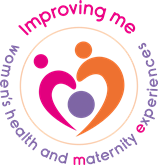Pregnancy Loss
Sadly, some babies are lost during pregnancy, birth, or shortly afterwards. We have information and support for anyone who has experienced the loss of a baby, whether through miscarriage, ectopic pregnancy, stillbirth or neonatal death.
What is an ectopic pregnancy?
An ectopic pregnancy is when a fertilised egg implants itself outside of the womb, usually in one of the fallopian tubes. The fallopian tubes are the tubes connecting the ovaries to the womb. If an egg gets stuck in them, it won't develop into a baby and your health may be at risk if the pregnancy continues.
Ectopic pregnancy patient information leaflet
Unfortunately, it is not possible to save the pregnancy and it usually has to be removed using medicine or an operation. In the UK, around 1 in every 90 pregnancies is ectopic. This is around 11,000 pregnancies a year.
Signs and Symptoms of an Ectopic pregnancy
An ectopic pregnancy doesn't always cause symptoms and may only be detected during a routine pregnancy scan. If you do have symptoms, they tend to develop between the 4th and 12th week of pregnancy.
Symptoms can include a combination of:
- a missed period and other signs of pregnancy
- abdominal pain low down on one side
- vaginal bleeding or a brown watery discharge
- pain in the tip of your shoulder
- discomfort when urinating or having your bowels opened
When to get advice or emergency help if you are concerned about an ectopic pregnancy
Seek advice from your GP or call NHS 111 if...
- you have a combination of any of the symptoms above and you might be pregnant – even if you haven't had a positive pregnancy test.
Seek emergency help - call 999 or visit an Accident and Emergency department if...
- you have a sharp, sudden and intense pain in your tummy
- you are feeling very dizzy or fainting
- you are feeling sick
- you are looking very pale
Click the links below for further information about ectopic pregnancy:
What is a miscarriage?
A miscarriage is the loss of a pregnancy during the first 23 weeks of pregnancy. It is estimated that miscarriage occurs in around 1 in 4 recognised pregnancies, with 85% of those happening in the first trimester (weeks 1 to 12). Experiencing a miscarriage after 12 weeks is much less common.
Most miscarriages cannot be prevented, and the cause is not usually identified. Please be reassured that the majority are not caused by anything the mother has done.
It is thought that most miscarriages are caused by abnormal chromosomes in the baby. The chromosomes are genetic building blocks that guide the development of the baby. If there are too many or too few chromosomes, the baby will not develop, and the pregnancy will not continue and may result in a miscarriage.
For most women, a miscarriage is a one-off event and they will go on to have a successful pregnancy in the future.
Signs and symptoms of a miscarriage
The most common sign of miscarriage is vaginal bleeding. This can vary from light spotting or brownish discharge to heavy bleeding and bright-red blood or clots. The bleeding may come and go over several days. However, light vaginal bleeding is relatively common during the first trimester (first 3 months) of pregnancy and does not necessarily mean you're having a miscarriage. If you have vaginal bleeding, contact your GP or maternity team as soon as possible.
If you've had 3 or more miscarriages in a row (recurrent miscarriage) and are worried about your current pregnancy, you can go straight to an early pregnancy unit for an assessment.
Other symptoms of a miscarriage include:
- cramping and pain in your lower tummy
- a discharge of fluid from your vagina
- a discharge of tissue from your vagina
- no longer experiencing the symptoms of pregnancy, such as feeling sick and breast tenderness
Can miscarriages be prevented?
As mentioned above, most miscarriages cannot be prevented, but there are things you can do to lower your risk of miscarriage, including
- Not smoking
- Not drinking alcohol or using illegal drugs during pregnancy
- Eating a healthy balanced diet
- Avoiding certain food during pregnancy
- Being a healthy weight and maintaining your BMI below 30 before getting pregnancy
Click the links below for further information about miscarriage:
Termination
A termination or abortion is the medical process of ending a pregnancy, so it doesn't result in the birth of a baby. The pregnancy is ended by by taking medication or having a surgical procedure. One in three women will have an abortion in their lifetime.
For more information please visit: Abortion – NHS
Additional resources for pregnancy loss support
There are charities available which provide advice, support and resources if you are experiencing a pregnancy loss. Please access the following if you require further information
